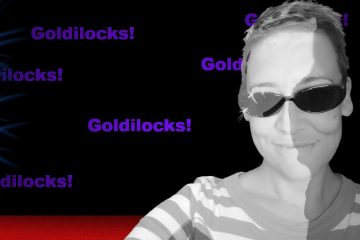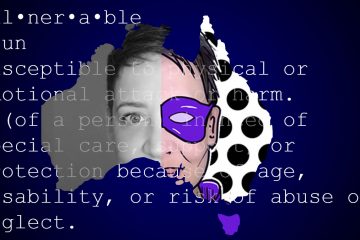Okay, I’m going to face this head-on. Unusually, my post the ‘Not Working of Benefits‘ did not finish on the positive note that the others have. That’s because life with (and without) epilepsy is erratic and unpredictable. Throw into that mix a dash of instability, a splash of are-you-kidding-me, and a sprinkle of come-on, and events (however much you want them to) don’t tie up neatly.
Picture the scene: it’s early 2017 in a seaside town in the UK. My doctor has signed me off work, and, although I’d had long absences from work before, this one felt different. It felt like a turning point; it was time to decide. I had to choose between my health and having fewer pennies each month. Every other time I’d gone with the money. I didn’t believe it was possible to exist without a salary; I nearly proved myself right.
I’d been toe-to-toe with the Department of Work and Pensions (DWP) for 2 years, and they had me on the ropes. I’d applied successfully for the Personal Independence Payment and, for reasons I couldn’t fathom, they’d removed it almost 18 months later. I followed the required protocols. I’d requested a mandatory reconsideration, which the DWP then promptly denied. I’d jumped through, what I perceived to be, all the right hoops and the DWP were winning.
Last Chance Saloon
My last chance was to appeal to Her Majesty’s Courts and Tribunal Services (HMCTS) for an independent panel to review the DWP’s decision. And, in April 2017, my request went off in the post. The sh*t, if it hadn’t been before, had just got real. The DWP had 30 days to respond to me, and on something nearing the 28th or 29th day, a large envelope showed up. It was 300 pages, printed on both sides. It was every single document they’d ever sent to me, and I’d ever sent to them (and more). When I called my guy at Citizens Advice, he all but laughed down the phone.
Citizens Advice: ‘Yeah, they do that.’
Goldilocks: ‘Do what … what are they doing?’
Citizens Advice: ‘They’re trying to drown you in paperwork.’
Not me! I went through all 600 pages with a fine-tooth comb. This was a cause worth fighting. I found the nurses’ notes from the February 2015 assessment and the December 2016 review within their bundle. My responses to the medical questions were different. I knew I’d proved my condition had deteriorated in 2016. However, the DWP’s notes told a different story; it felt like the nurse from 2015 had written hers using a different set of guidelines.
Nurse 2015 appeared concerned with my safety. As if she’d cottoned onto the fact that 95% of the time I function as a person, while the other 5% of the time it’s just not possible. Nurse 2016 seemed more concerned with whether I’d had a seizure in front of her during our 45-minute interview. Now, this wouldn’t have been impossible, I do have an unpredictable condition. Yet, I don’t have any control over when my seizures occur. I can’t rustle one up for the entertainment of or evaluation by the DWP (or anyone else for that matter).
Tomato Soup … Anyone?
The stress was enormous, and though I wasn’t working, I was having daily seizures. Yet, I knew I had to construct a response to the DWP’s paperwork. I had to make sure I had my say, my way. I had a butt-load of paperwork too. It was all about evidence, evidence, evidence. I needed to make sure that the panel understood what it was like to live (not just a day but) a week in my shoes.
All I could do was wait. I had rent and bills to pay. The fact I wasn’t in debt was (more than a little) lucky. I was trying (desperately) to live on SSP and a reduced amount of housing benefit. To help, I slashed my bills as much as possible. Although, there’s only so much tomato soup or Marmite on toast one girl can eat before she goes nuts.
I received a letter from HMCTS; they’d set a date for my tribunal. I’d waited 7-months (which is not unusual, unfortunately), and now it was my turn. I was nervous, incredibly stressed, on top of the anxiety I was struggling to manage. This was my last chance. My situation was untenable.
I don’t understand what the DWP thinks is happening while they spend extraordinary amounts of time reviewing claimants. Do they really think every person who makes a claim can afford to survive for months on end while they decide if that claim is valid? If the claimant could survive for months on end without help from the government, they wouldn’t be claiming.
Change Isn’t Always a Good Thing
So, it’s gotta be ‘Column B’, right? Every person who applies is a phoney, only claiming to defraud the system. However, it’s been proven time and time again that this is not the case. The percentage of fraudulent claims in the UK is minimal. But still, the DWP assumes every single applicant guilty until proven innocent. They’re asking claimants to prove a negative. It’s a ridiculous process to have in place, demeaning, and entirely unnecessary.
For me, losing this tribunal would mean drastic changes: living on my own would not be feasible, I couldn’t afford it. Mum and Dad, who’d been paying my rent for 6 months, couldn’t afford it. Going back to work wasn’t practicable; it’d done me damage health-wise. And there’s also the small issue of finding an employer. However competent, vibrant and charismatic I am, it’s (pretty much) impossible to find a company who’d take on someone with my absence record and a disability as volatile as mine.
The very nature of epilepsy meant I had a seizure the night before the tribunal, to add to the tension. G. came with me for several reasons: I needed moral support; this was my only shot; I needed someone who knew me well enough to know when I was going to freak out. To say, ‘listen, take your time, breathe.’ And I’m pleased he was there because I almost lost my sh*t, with the doctor on the panel. G. jumped in lightning-fast and caught me. He knew I’d misinterpreted the doctor’s curiosity as condescension. It was my heightened level of stress that oh-so-nearly blew my entire tribunal.
Three Little Words
The panel asked me questions relating to the application form, and I answered honestly and always on the worst day-case scenario. These questions took 45 minutes to an hour. G. and I left and went back to the waiting room, leaving the experts to discuss my case. It was fewer than 30 minutes before the clerk called us back in. The judge announced she’d allowed my appeal, but (OMG) she’d gone a helluva lot further.
It felt like she had got a real bee-in-her-bonnet about the DWP and their treatment of people with epilepsy and other invisible disabilities. Her ruling was incredible. She not only reinstated my PIP award, she’d also found that I should’ve been receiving waaaaaay more because the DWP’s original decision was an error of law.
It’s those three words which swung it from ‘yeah, I’ve done well’ to ‘holy f*cking moley, I’ve kicked a*se’! Not ‘I love you,’ not ‘side of fries,’ not ‘great work, Goldilocks,’ but ‘error of law.’ The DWP had f*cked up my initial award, and I was going to be okay! But not because the judge said so; not because I have epilepsy; not because my seizures are uncontrolled, but because the law says so!
I clung to G. as we walked, slowly, out of the government-grey-nondescript building and around the corner. And then I lost it. I burst into tears and cried, hard-sobbing-snotty-crying, for about 5 minutes. I felt an odd mix of relief and thanks. It was over! G. was (probably) extremely embarrassed he was standing with a woman bawling in the street. Who knows what people thought? Who cares?
Epilepsy’s Not Just Seizures
The DWP (quite literally) confiscated my personal independence. There was no way I was gonna let that happen, not without a fight. I had incredible help from an unbelievable network who supported me immensely emotionally and financially; I wouldn’t have made it without them.
When the judge made her ruling, I’d felt validated. After reading my statement and talking to me for 45 minutes, she had understood what it’s like to live with epilepsy. She’d grasped that it’s not just about having seizures. And, because of this, she’d awarded me the freedom I needed. I could stop thinking about how I was going to pay for X, Y or Z and start putting my health first.
People claim benefits because their illnesses, disabilities, or mental health conditions (or those of someone they care for) mean they need additional help. For many, their stories end differently. It’s my view that the system is complicated, long-winded, and frightening by design. Many people don’t continue to battle after the first ‘no’, whether due to financial constraints or stress. And I believe the DWP relies upon this to prevent claimants from challenging their decisions.
For me, this award represents what I value most; holding onto it means I can remain living alone. It means I can maintain my independence. I tell you this, not in a, ‘neener neener. I won,’ kinda way. But to emphasise that I was claiming only for what I deserve; any more would have been too much. I couldn’t continue on the amount I was receiving, that was way too little. I asked for and, thanks to the judge, had been awarded what was just right.
The system in the UK (and elsewhere) is flawed, and while it may feel like too much to handle, we can make a difference. We can work together to raise awareness of invisible disabilities, of epilepsy.
Because having epilepsy is like being Goldilocks: you can’t have too much, you can’t have too little; everything has to be just right.
Copyright © Jo Mackenzie 2020



0 Comments